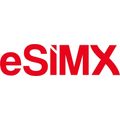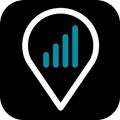GoMoWorld permet aux utilisateurs d'accéder à Internet dans plus de 170 pays grâce à une seule eSIM. Une fois que vous avez installé votre eSIM, vous pouvez la réutiliser partout dans le monde (pas besoin d'en installer une nouvelle et de répéter tout le processus). Avec une tarification transparente à partir de 3,99 € pour 7 jours, GoMoWorld garantit une solution simple et rentable pour rester connecté dans le monde entier.

GoMoWorld permet aux utilisateurs d'accéder à Internet dans plus de 170 pays grâce à une seule eSIM. Une fois que vous avez installé votre eSIM, vous pouvez la réutiliser partout dans le monde (pas besoin d'en installer une nouvelle et de répéter tout le processus). Avec une tarification transparente à partir de 3,99 € pour 7 jours, GoMoWorld garantit une solution simple et rentable pour rester connecté dans le monde entier.
Code Promo
Forfaits de données eSIM GoMoWorld pour l'Indonésie
Questions fréquemment posées
GoMoWorld propose-t-il une eSIM à données illimitées pour l'Indonésie ?
Le catalogue eSIM de GoMoWorld ne contient pas de forfait avec une limite de données illimitée pour l'Indonésie. Les voyageurs à la recherche d'une option à volume élevé peuvent choisir parmi plusieurs forfaits à données fixes, comme le forfait de 25 GB valable 30 jours au prix de 35, 43 USD ou le forfait de 17 GB pour la même période à 23, 62 USD. Ces allocations plus importantes offrent une étendue d'utilisation similaire pour la plupart des voyageurs, tout en restant rentable par rapport à un forfait illimité. Opter pour un forfait à données fixes est souvent un choix plus économique à moins que l'utilisateur ne prévoie de consommer des données bien au-delà du forfait fixe le plus généreux.
GoMoWorld propose-t-il une eSIM indonésienne avec numéro de téléphone et SMS ?
GoMoWorld ne fournit pas d’eSIM pour Indonesia qui inclut un numéro de téléphone ou la capacité SMS. Leurs forfaits Indonesia disponibles sont uniquement de données ; les clients peuvent utiliser des services VoIP tels que WhatsApp, Telegram ou iMessage via la connexion de données pour la voix et la messagerie à la place.
Combien de forfaits de données GoMoWorld propose-t-il pour l'Indonésie ?
GoMoWorld propose huit forfaits de données pour Indonesia, répartis également entre des options à pays unique et multi-pays. Les forfaits à pays unique ciblent exclusivement Indonesia, tandis que les forfaits multi-pays incluent Indonesia comme partie d’une zone de couverture plus large qui peut s’étendre à d’autres pays. Tous les forfaits offrent des quantités de données fixes—variant de 1 GB à 25 GB—avec des périodes de validité de 7 à 30 jours. Les prix de l’ensemble de la gamme se situent entre environ 4, 71 $ et 35, 43 $. Certains forfaits autorisent également le tethering, permettant le partage d’une connexion entre plusieurs appareils.
Résumé avec Gen AI. Dernière mise à jour:




